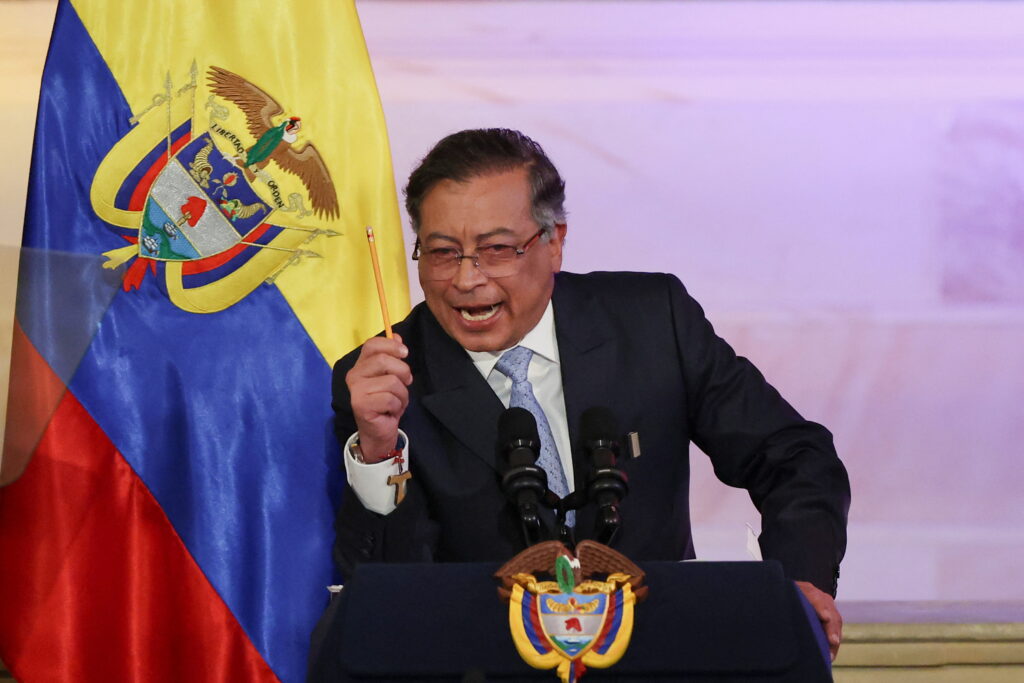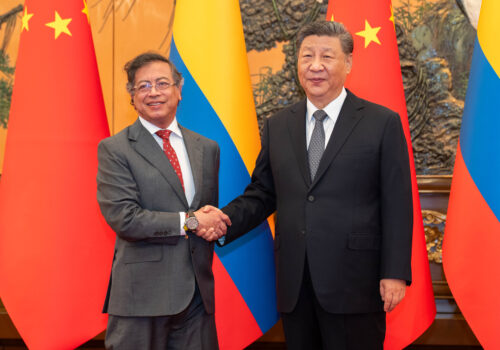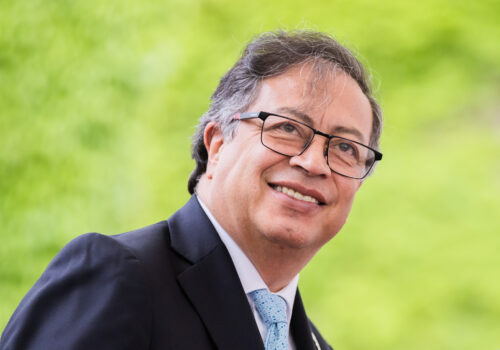In recent months, Colombian President Gustavo Petro has made a series of remarks that have alarmed constitutional experts and political analysts in the country. In effect, he has suggested that he would be willing to plunge the country into a constitutional crisis. This comes at a time when Colombia is reeling from the assassination of presidential candidate Miguel Uribe Turbay, who died this month. This alarming act of violence hearkens back to the worst years of the country’s political crisis between 1989 and 1990, when three presidential candidates were killed.
It is worth looking in more detail at what the Colombian leader has said and why so many in the international community are alarmed.
1. What has Petro proposed for the March 2026 election ballot?
Petro has said he wants Colombians to decide whether to convene a constituent assembly, a body that would be tasked with rewriting the constitution. He wants to put this question to voters in Colombia’s March 2026 legislative elections. In a social media post in late June, he announced that “a ballot will be provided” to voters in those elections to ask whether to call a National Constituent Assembly. Under Colombia’s 1991 Constitution, however, calling a referendum on constitutional reform first requires a law passed by Congress. The president alone does not have the authority to propose a constitutional reform directly. Instead, Congress must give the green light to proceed with a vote.
2. What is Petro’s rationale for proposing this?
Petro has argued that Congress and the courts have repeatedly blocked core elements of his reform programs, and therefore a direct popular mandate is necessary to bring about meaningful change. He is calling for a “popular constituent process” in a way that could subvert the separation of powers. In March, for instance, he sought to pass a labor reform via referendum after it was defeated in the legislature; a high court then suspended his decree, which paved the way for his recent moves for the March 2026 election. In recent speeches, Petro has invoked the notion that his government reflects the will of the people, surpassing what he describes as a political system dominated by political elites. In March, he said that “the National Constituent Assembly must transform the institutions so that they obey the people’s mandate for peace and justice.” In doing so, he is implying that institutional resistance justifies extraordinary action, even if it is outside the conventional bounds of the rule of law.
3. What obstacles does Petro’s proposal face?
The first obstacle that Petro is facing is simple: The numbers don’t work in his favor. Petro’s Pacto Historico coalition lost control of the Senate in April 2024 and it also has a minority in the House, which is why the president’s flagship reforms have hit a wall. Getting an enabling law to trigger a constitutional referendum seems like it is a nonstarter in Congress.
Even if Congress advanced a bill, the Constitutional Court—which has been an important check on Petro’s authority—would review both the process and substance of the reform to ensure its legality. And even then, assuming it checks all the boxes, the reform would need to win a majority of votes cast, with at least ten percent or more of the voters participating in the referendum, for it to move forward. Given high polarization and the fact that Petro’s approval rating is only around 37 percent, there is plenty of opportunity for the opposition to organize a boycott or street protests against such a vote.
4. What does this reveal about the overall state of Colombia’s democracy?
Ultimately, this is a stress test for Colombia’s institutions. So far, the checks and balances in the country have been holding. But if Petro tries to force through a reform, then it could place a real strain on them. There has been growing concern from Petro’s critics that he may even seek to advance a reform allowing him to run for reelection, as Alfredo Saade, Petro’s former chief of staff, has persistently made statements suggesting that he supports the president remaining in office beyond his term. (Since 2015, the sitting president has been barred from running for reelection.) This has created worry among civil society, the judiciary, the political opposition, and international observers alike.
Petro came to power in August 2022 promising change, but his administration has been slow to deliver. His unclear foreign policy, poor economic management, and the resurgence of insecurity since the failure of his total peace approach in mid-2024, have stirred painful memories of Colombia’s darker past.
Petro’s new ballot adventure is likely to be challenged in the courts, and it will probably be denied by Congress if his party tries to sponsor a bill calling for an extraordinary vote to request the need for a constituent assembly. But the real risk is that during the time the president is campaigning for his new ballot, political polarization could increase to a dangerous degree. As the assassination of Uribe demonstrated, Colombia’s stability cannot be taken for granted. Political polarization has grown to the point where there is no control over the language used by political leaders to disqualify their opponents. Petro’s followers, for example, regularly label their opponents as far-right extremists and fascists, while some critics of Petro have called him a communist, exacerbating the political polarization in the country.
5. How should the US view the possibility of greater political polarization in Colombia?
For the United States, a nation with a deep and long-standing interest in Colombia’s stability and prosperity, the strategic risks are evident and immediate. The extent of Colombia’s polarization is potentially damaging to hemispheric economic security, trade, investment, and democratic norms.
Since 2002, the US relationship with Colombia has been a rare point of bipartisan consensus in Washington. From Plan Colombia to support for the peace process with the Revolutionary Armed Forces of Colombia, known as FARC, in 2016, the bilateral relationship has focused on security cooperation, drug interdiction, trade, and regional stability with deep support from both Republican and Democrat politicians. There was also bipartisan buy in for the US-Colombia Free Trade Agreement, which has made Colombia a top destination for US investment, particularly in the energy, agricultural, and service sectors.
Political instability could deter investment, affect the rule of law, and disrupt vital supply chains. In today’s climate of global competition, the United States cannot afford to lose one of its most trusted partners in the hemisphere, especially when the Petro administration has flirted with closer ties to China.
Given the stakes, the most prudent US approach is to make clear the importance of Colombia’s rule of law while continuing high-level engagement. US policymakers can and should reinforce the importance of Colombia’s judicial independence, independent election administration, and peaceful, transparent electoral competition.
Enrique Millán-Mejía is a senior fellow for economic development at the Adrienne Arsht Latin America Center. He previously served as senior trade and investment diplomat for the government of Colombia to the United States between 2014 and 2021.
Geoff Ramsey is a senior fellow for Colombia and Venezuela at the Adrienne Arsht Latin America Center.
Further reading
Thu, Aug 7, 2025
Five charts that show how criminal organizations in Colombia work—and grow
New Atlanticist By
Our experts break down the numbers that show the reach, power, and influence of drug cartels and other transnational criminal organizations.
Thu, May 15, 2025
Four questions (and expert answers) about the China-Latin America summit
New Atlanticist By
At the summit, China offered billions of dollars’ worth of credit and Colombia entered into the Belt and Road Initiative.
Tue, May 7, 2024
Colombia’s president must focus on economic stewardship in the second half of his term
New Atlanticist By Enrique Millán-Mejía, Geoff Ramsey
President Gustavo Petro should adopt a steadier hand on domestic issues and a more cooperative stance toward international private sector investment.
Image: Colombian President Gustavo Petro speaks as Colombia's Congress opens its new session, in Bogota, Colombia, July 20, 2025. REUTERS/Luisa Gonzalez.




